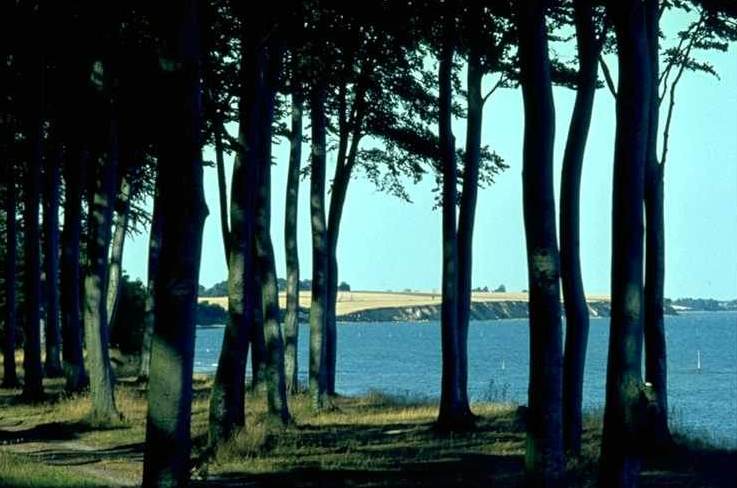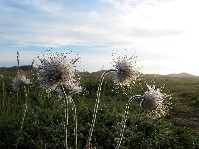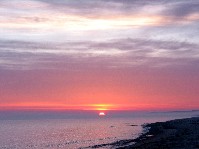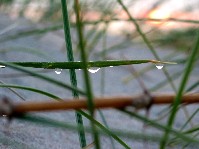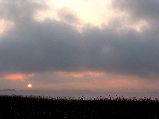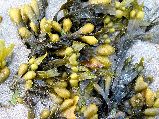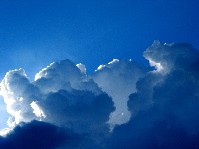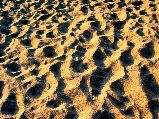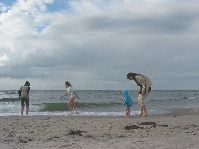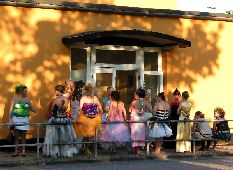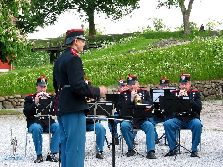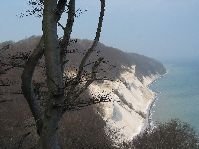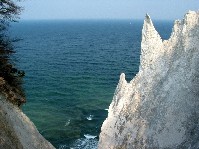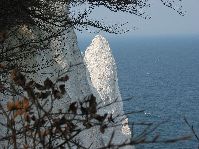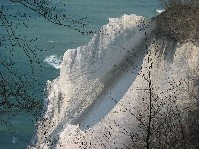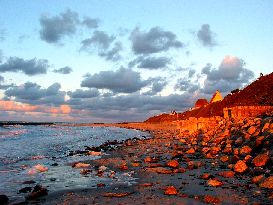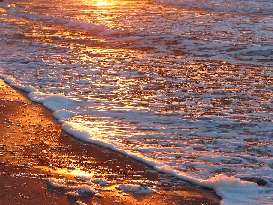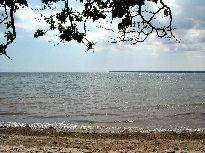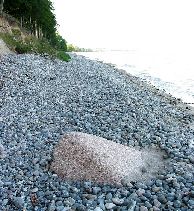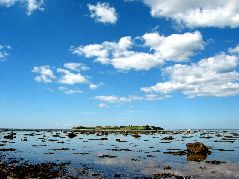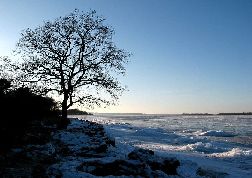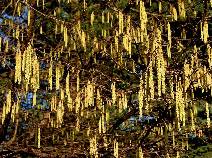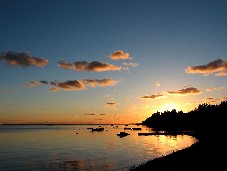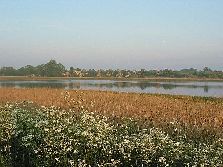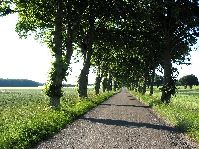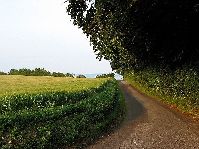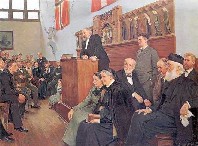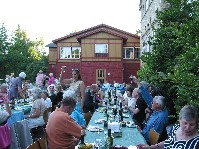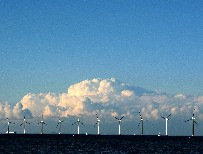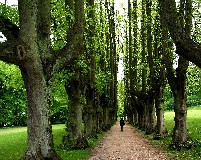Denmark is a land of coastlines. No matter where you are in the country, the distance to the sea is short, and the chances of sea-views are pretty fair. There are thousands of kilometres of sandy, stony, quiet and evocative shores. And the abundance of fjords, islands and beaches is very attractive to foreign tourists, especially if their homeland is in the middle of a continent. In fact, the sea with its infinite horizon impresses the continental tourist in the same way as the high mountains attract the Danes.
The most popular beaches are those with plenty of sand and dunes. Other coastlines - especially in southern Denmark - are framed by dense beech forests bordering on the sandy or stony coasts - a landscape, which has inspired several famous Danish poets. Walking in these areas is one of the most rewarding nature experiences you can get in my country.
From a climatic point of view, Denmark is a land of contrasts. The Danish winter is long dark, wet and humid. But when the first signs of spring appear in March or April, everybody wakes up and crowds in the outdoor cafés, the parks and the countryside. And everybody loves the warm and dry periods in summer, with the long, bright nights and the fresh and green vegetation.
Most of the photos on this page are concentrated on two areas in Denmark: The northern Zealand close to the Kattegat Sea, where I use to spend my weekends and most of my summer holidays - and the island of Møn in southern Denmark, where I stayed for long periods during my childhood. I hope that my photos will explain some of my enthusiasm.
1-4: Early spring morning in May at the sea of Kattegat (Liseleje), northern Zealand.
1: Very early sunrise at the lake Arresø, northern Zealand.
2: Seaweed at the beaches of Kattegat (Liseleje) in June.
3-4: Memories from a wonderful summer at the Kattegat Sea, northern Zealand.
1: Extensive beech forests bordering on the sandy coasts of the Baltic Sea on the island of Møn, southern Denmark.
2: Playing family at the Kattegat Sea near Liseleje, northern Zealand.
3: Young girls waiting for their performance of a dress parade in the town of Køge.
4: Vintage orchestra at "Kastellet", a beautiful historical site near the harbour of Copenhagen.
1-4: From Møns Klint on the island of Møn, southern Denmark.
In my mind there is no doubt: Møns Klint is my favourite place if I am asked about the most impressive landscape in Denmark!
A walk along the chalk cliffs is a unique experience whether you walk in the heights, along the beach, in summer or on a dark winter day. The sound of the waves reflecting from the high, white cliffs, the impressive views, the conscience of walking in a landscape with a geology created at the time of the dinosaurs, the hilly forests in the hinterland, the great number of orchids - everything is special and fantastic. Although I live in Copenhagen, which is about 150 kilometer away, I MUST take a walk here at least once a year.
Geologically, Denmark is a young country. Virtually, all its landscapes are created by the movements of the ice in the very late periods of the earth´s history. The impressive cliffs of Møns Klint are also the result of the massive press of the glaciers about 15.000 years ago. However, the white chalk in the cliffs was created about 70 million years ago! Quite an impressive age considering, that the last dinosaurs disappeared from earth about 65 million years ago!
Finally, some short, lexical facts: The cliffs have a length of about 6 kilometers, and the maximal height at the sea is 128 meters. The white chalk was deposited in a tropical sea about 70 million years ago. It consists of almost pure chalk, derived from one-celled algees living in the upper layers of the sea. You can find fossils of several organisms in the chalk. About 15.000 years ago, these deposits were changed into the impressive formations by the huge press from the ice.
1-2: Evening colours at the Kattegat Sea in October.
3-4: From the coasts of the Baltic Sea on the island of Møn, southern Denmark.
1. The small island Nekselø close to western Zealand is a protected area because of its unique natural beauty and qualities.
2: The Danish winter is usually dark, humid, cloudy and rainy, but somtimes, in frosty periods, the weather may be clear and sunny. Like on this photo in Februay at Roneklint in south eastern Zealand.
3: Blooming hazel in March near the village of Melby, northern Zealand.
4: Sunset near Hundested, northern Zealand.
1. August and September with its clear silence of the blue sky often creates landscapes of clean and colorful beauty. This photo is from Melby in northern Zealand, with ancient barrows in the background.
2: One of the bright summer nights of June, here from Stege Nor on the island of Møn.
3-4: Several of the small roads in the Danish countryside are perfect for a bicycle holiday. Photo nr. 3 was taken close to the village of Damsholte on the island of Møn. Photo nr. 4 is from Tessebølle on the island of Langeland.
1-2: From The Danish folk high schools.
The first Danish folk high schools were created about 140 years ago, based on the ideas of Grundtvig, who is a principal character in the Danish cultural history. His thoughts and ideas of general education for everybody have spread worldwide, and thousands of Danish men and women have spent several wonderful months in a folk high scool, searching for a personal identity in a fruitful community.
Denmark developed its unique Folk High School concept from the middle of the 1800s. Danish Folk High Schools are institutions of further education. They do not set exams, they do not offer degrees or other university-style qualifications. Rather, they concentrate on developing the professional and personal qualities of individual students. The spirit of the Folk High School is one of openness to new opportunities, readiness at accept challenges and a willingness to explore the world and oneself in depth. The minimum age for attending a Folk High School is 18. There is no maximum age! Most students are in their early to mid 20s, but you never know who's going to turn up from one term to the next.
1: "At Askov Folk High School". Painting by Erik Henningsen from 1902. This picture has always fascinated me because of its atmosphere, details and symbols. The spoken word is still one of the most important features of the Danish folk high schools.
2: Great days at Vallekilde Folk High School in summer, 2005.
3: Windmills near Copenhagen. In Denmark, more than 30 percent of our energy is created by windmills.
4: Quiet walk in the park around Sofienholm, an art museum near Copenhagen.
Wanna see images from wonderful Copenhagen? Then click here to se my selected photos of the capital of Denmark.
Almost all the photos on this page are taken with a Canon G2 digital camera. In order to reduce the download time, the size and the data of the the photos are strongly reduced compared to the originals, and this has inevitably reduced the technical quality, too. However, all photos may be delivered in full size and quality for use in books, magazines, papers, etc. The price is 70 Euro per picture.
Click here to see my digital photos from Madeira.
Click here to see my digital photos from Gambia and Senegal in West Africa, February 2004.
Click here to see my digital photos from a trek in High Atlas, Morocco, September 2003 (text in Danish).
Click here to see selected photos from my numerous travels all over the world.
Click here to read and watch the photo gallery story about
my overland trip along The Hippie Trail from Copenhagen Central Station to Kathmandu in Nepal.
Click here to see the main entrance to the English version of my home page, with exciting and interesting articles about travelling and trekking.
If you have any comments, or if you want to buy some of the photos, please mail me on the address
erikponty@post.tele.dk












